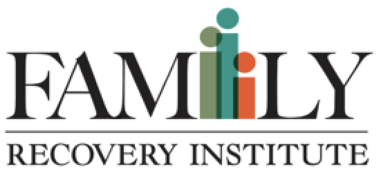Eight sessions, the third Friday of the month:
Oct. 19, Nov. 16, Dec. 21, 2018, Jan. 18, Feb. 15, Mar. 15, April 19, May 17, 2019 12:30 pm – 2:30 pm
Intersubjectivity theory gives clinicians the tools to work effectively with developmental trauma and traumatic attachments while avoiding the impasses that often undermine treatment. While intersubjectivity theory is conceptually simple, it can be difficult to put into practice.
In this course, we’ll study the basic concepts of intersubjectivity theory with the goal of translating theory into practice. In each class meeting, we’ll discuss a foundational paper in intersubjectivity theory. Topics will include working with developmental trauma; understanding transference and countertransference; effectively practicing affect attunement; using the most emotionally salient forms of interpretation; and overcoming pathological accommodation. This will be followed by a discussion of a case in which participants will learn to effectively translate these ideas from theory to practice. Participants should develop greater confidence in helping patients suffering from developmental trauma and traumatic attachments while avoiding the most common obstacles to successful treatment.
Intersubjectivity theory and infant research have revolutionized our understanding of effective treatment for developmental trauma and traumatic attachments. This seminar is based upon the most influential works in these two fields. These works define developmental trauma and traumatic attachments and illustrate how therapists can work with them effectively.
Learning Goals and Objectives:
- Define the bi-phasic nature of trauma and work effectively with it in treatment.
- Identify their patients’ unconscious organizing principles.
- Explain how intersubjectivity theory understands the therapeutic alliance, and effectively establish and maintain a working alliance with their patients.
- Explain the difference between categorical affects and vitality affects.
- Describe three vitality affects and effectively employ them in treatment.
- Define the three principles of salience and employ them effectively in treatment.
- Define model scenes and use them to construct effective interpretations.
- Explain the relationship between pathological accommodation and traumatic attachment.
- Explain the difference between the dread to repeat and the dread not to repeat.
- Track effective shifts in their patients that signal the shift from enthusiasm to malaise, and intervene effectively to prevent prolonged negative therapeutic reactions.
Jane Rubin, PhD, PhD, LMFT, received her PhD in Philosophy from UC Berkeley, her PhD in Clinical Psychology from the Wright Institute, and her PsyD in Contemporary Psychoanalysis at the Institute of Contemporary Psychoanalysis in Los Angeles. She is in private practice in Berkeley.
COST:
Non Members:
$280 early registration up to 10 days prior to class, $320 after
CIP Members:
$200 early registration up to 10 days prior to class, $220 after
CEs: 16 CEs for LMFTs, LCSWs, and Psychologists. Certificates issued after completion of eight sessions.
Community Institute for Psychotherapy is approved by the American Psychological Association to sponsor continuing education for psychologists. Community Institute for Psychotherapy maintains responsibility for this program and its content.
Cancellations must be received in writing 10 business days prior to the seminar or class for a refund minus a $25 cancellation fee.
Accommodation for Special Needs: Accommodations will be made wherever possible to accommodate those with disabilities. Please let us know of any disabilities upon registration, to ensure that proper accommodations are put in place prior to workshop/training.
Grievance Procedure: CIP will respond to complaints in a reasonable, ethical and timely manner, when submitted by program attendees in writing to the Chair of CIP’s Professional Development Committee.
Anti-Discrimination Policy: CIP shall not discriminate against any individual or group with respect to any service, program or activity based on gender, race, creed, national origin, sexual orientation, religion, age or other prohibited basis. CIP does not require attendees to adhere to any particular religion or creed in order to participate in training. CIP will not promote or advocate for a single modality of treatment that is discriminatory or likely to harm clients based on current accepted standards or practice.
*There is no conflict of interest or commercial support related to this CE program.











